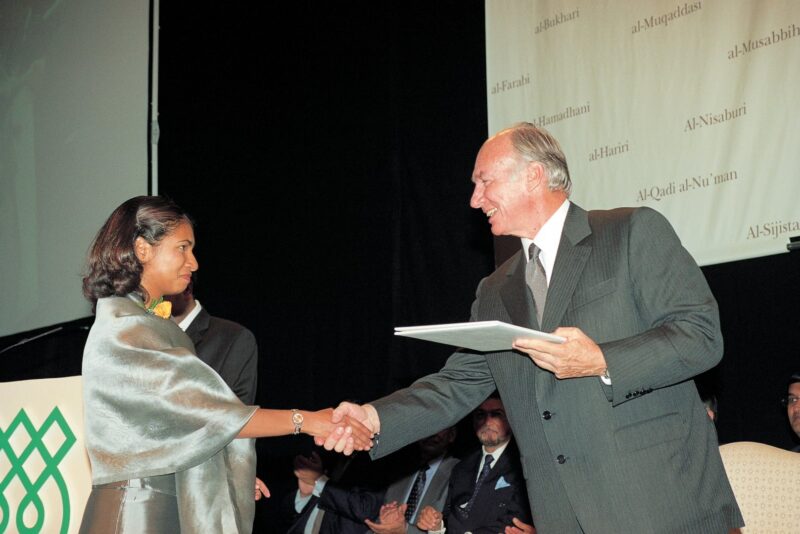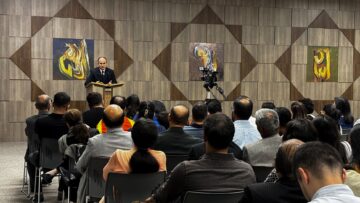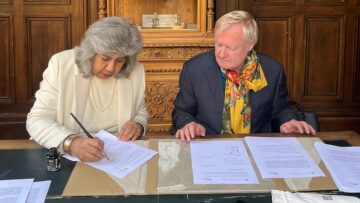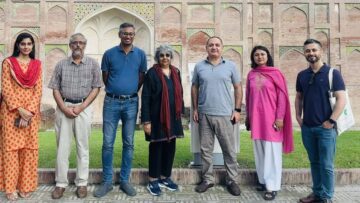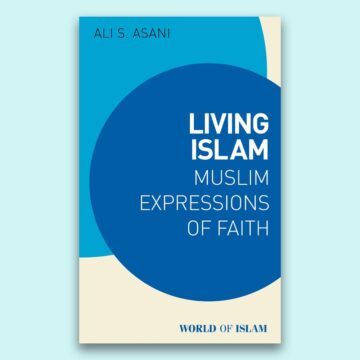For 11 July, which marks 65 years since our founder, His Highness the Aga KhanA title granted by the Shah of Persia to the then Ismaili Imam in 1818 and inherited by each of his successors to the Imamate., acceded to the Imamat, we are launching a new online timeline tracing 45 years of The Institute of Ismaili Studies (IIS).
At the 1975 Ismailia Association Conference in Paris His Highness took the decision to establish the IIS in London following a consultation process with leaders of the global JamatAssembly or religious congregation; also a term used by the Nizari Ismailis for their individual communities., and on 25 November 1977 the Institute was officially inaugurated.
Since its establishment—with just six members of staff—the IIS has seen significant growth, and we now employ around 120 people, including researchers and lecturers in Islamic studies, editors, librarians, cataloguers, educationalists and professional support staff.
The IIS library was one of our first initiatives, and has established itself as a significant repository and resource for Ismaili and Islamic studies. In 2014 it merged with the library of the Aga Khan University’s Institute for the Study of Muslim Civilisations (ISMC), later becoming the Aga Khan Library (AKL). The collection now holds over 54,000 volumes in more than 50 languages.
To date, we have produced over 150 publications and translated many titles into Arabic, Persian, Portuguese, Russian and Urdu. We now have ten publication series, including the Ismaili Heritage Series and the Qur’anic Studies Series, as well as our more recent accessible World of Islam and Living Ismaili Traditions series.
We have also developed and published a religious education curriculum for the Ismaili community—for pre-school to secondary school aged children. This year we launched the IIS Digital Curriculum e-book platform, which will eventually be available in ten languages.
Preservation and study of Ismaili heritage is another core component of our work. Among our Special Collections is one of the most significant repositories of materials related to Ismaili communities in the world. These collections include nearly 3,000 manuscripts in Arabic, Persian, Indic and other languages, as well as coins, glass weights, medals and other historical artefacts, photographs and audio-visual materials, rare and special printed materials (including periodicals and magazines) and archival collections.
Another aspect of our mandate is the development of people. Since 2001, over 3,000 people have participated in our professional development and education programmes, such as Leadership Orientation Programmes for the Jamat, Waezeen Training and the Summer Programme on Islam. In addition, 731 people have graduated from our graduate programmes, including 368 students from the Secondary Teacher Education Programme (STEP) and 267 from the Graduate Programme in Islamic Studies and Humanities (GPISH). We have awarded 53 doctoral scholarships since 1997.
Looking forward, alongside building on our research, publications and education programmes, we will seek to maintain a strong digital focus. The past six months alone have seen the launch of a new IIS website, the Ismaili Special Collections Unit online catalogue, and the e-book platform previously mentioned. We have also published our first Open Access titles, Central Asian IsmailisAdherents of a branch of Shi’i Islam that considers Ismail, the eldest son of the Shi’i Imam Jaʿfar al-Ṣādiq (d. 765), as his successor. by Dr Dagikhudo Dagiev and Texts, Scribes and Transmission by Dr Wafi Momin. Alongside its print collections, the AKL holds over 90,000 e-books and millions of articles, and continues to develop its Digital Collections platform. This way, we aim to make our research and scholarship accessible to members of the Jamat globally and to have greater impact within the academic community and among those interested in the study of Islam.
Thank you to all our staff, students, supporters and donors for sustaining a remarkable 45 years of expansion and development for the Institute—and to our founder for planting the seed of this growth.

